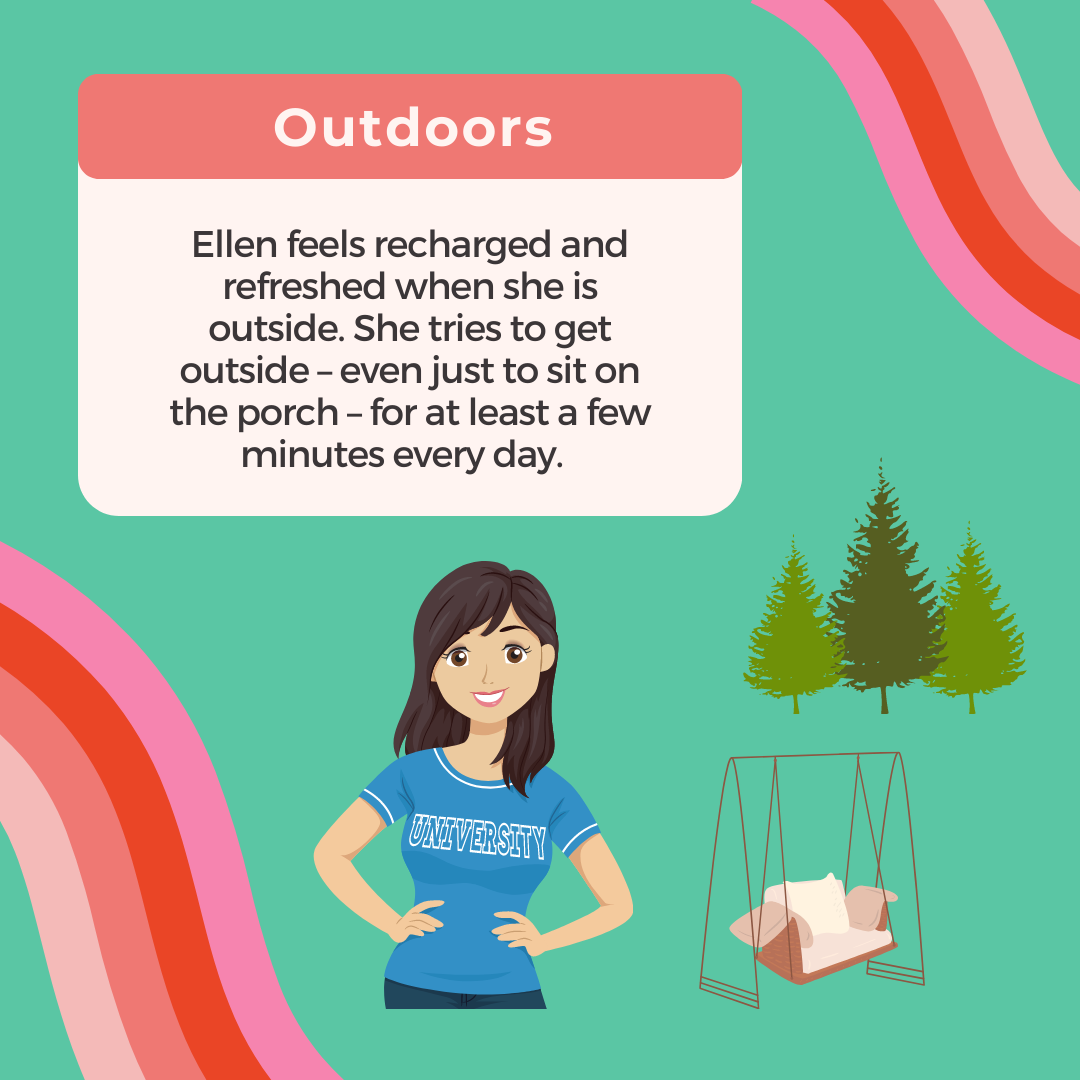Self-care is the way we take care of our mental health and emotional well-being. Everyone has their own unique way of practicing self-care. The key to practicing self-care effectively is to learn what makes you your happiest, best self and incorporate those activities into your routine.
Why is self-care important?
Have you ever had your favorite meal after a bad day at school and felt instantly better? Or talked to your funniest friend after feeling sad and forgot all about your problems? That’s self-care!
Self-care is important because it helps us maintain good mental health and recover from a negative life event, experience, or bad feelings like stress, anger, sadness, or frustration.
Self-care can keep us mentally strong and resilient (check out our Resilience article). Self-care helps us check in with our bodies and our feelings and use our own strengths to make us feel better.
How can I practice self-care?
The first step to developing an effective self-care routine is to understand what makes you happy and feeling good about yourself! Think about when you are happiest and feeling like the smartest, strongest, most confident version of yourself. This could be when playing a sport, spending time with your best friends, writing, drawing, singing, dancing, being outside, being with family, cooking, or something else! What makes you feel strongest will help you when you are in need of a pick-me-up mentally.
Check out some example self-care routines below.



BuzzFeed video: People Share Their Self-Care Routines

